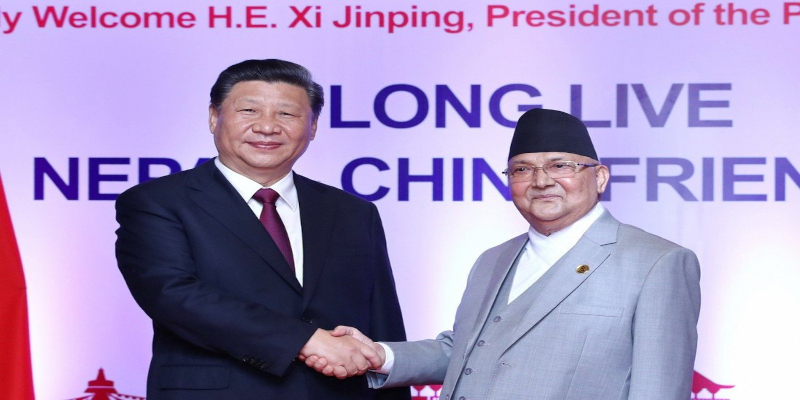Dharamshala, 11th December: China has set up another debt trap for a developing country by proposing a large-scale project, this time it’s Nepal. India recently put a halt to a Chinese project in Sri Lanka. The problem is that China’s projects frequently entrap the host nation with massive quantities of money that the host nation cannot pay, forcing the host nation to pay with its resources. There is also the environmental impact of these projects, which China rarely considers when its economy is flourishing.
China’s Foreign Minister Wang Yi announced that China will assist landlocked Nepal in improving road and rail connectivity, a move that experts say may raise strategic concerns for regional competitor India. Wang also offered sustained Chinese help for Nepal’s reconstruction following the tragic earthquake of 2015, and advocated stronger cooperation under the Belt and Road Initiative, while speaking at the International Conference on Nepal’s Reconstruction.
Wang in a video told the conference that China will make solid progress in the feasibility study of a cross-border railway project, improve the trans-Himalayan multi-dimensional connectivity network, and help Nepal realize its dream of changing from a ‘landlocked country’ to a ‘land-linked country.
The $8 billion cross-border railway between Shigatse, or Xigaze, in south Tibet and Kathmandu, Nepal’s capital, is anticipated to strengthen Nepal’s economy, which is Asia’s poorest country after North Korea. It’s also a key component of China’s grandiose Belt and Road initiative in South Asia.
The difficulty with the railway, according to Professor Madhav Nalapat, vice-chair of the Manipal Advanced Research Group, is that, while it has strategic value, it will be of limited practical use due to a lack of commercial demand along the route.
“Nor will there be much passenger demand,” Nalapat remarked. “Hence the view of many in India that the actual purpose of the railway is to speed up the entry of troops from China into Nepal [which borders India].”
Relations between Beijing and New Delhi have deteriorated since a fatal hand-to-hand battle occurred on their disputed border in the western Himalayas in June last year. India is concerned about the potential environmental impact of the China-Nepal railway project, according to Rajeev Ranjan Chaturvedy, associate professor at Nalanda University.







Leave a Reply